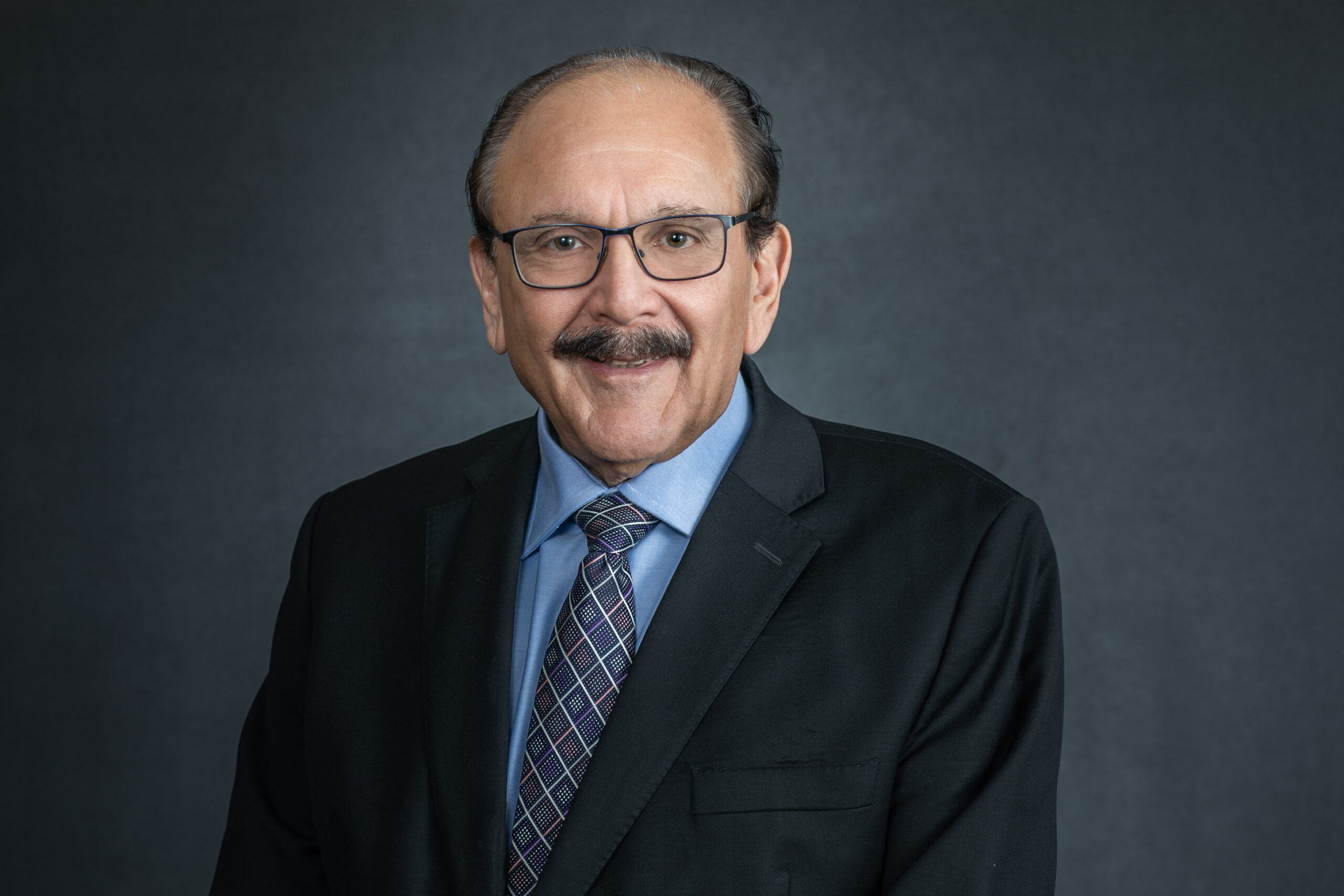Comprehensive Estate Planning
Wills, Trusts and Powers of Attorney.
Comprehensive Estate Planning Lawyers In Oakland County
There is nothing one wishes more than to be able to look after their own family. However, unplanned events and illness might take you away from your loved ones sooner than expected, leaving them unprotected and vulnerable. Our team at Gudeman & Associates, P.C., also known as Wills & Trusts Now!!, wants you to know that you have options. We are here to help you make decisions regarding financial, estate and health care directives for you and yours.
Trusted, Personalized Counsel With Wills, Trusts & Powers of Attorney
We have a strong reputation for creating and customizing estate planning solutions for each of our clients. Everyone is different. Is your family big or small? Will it be just you and your spouse? Unsure of whether you will be having children? Our estate planning solutions will give you the peace of mind of knowing that whatever comes, your financial ability to take care of you and yours will be guaranteed. With more than 100 years of combined experience, our attorneys truly understand the ins and outs of estate planning. Let our team of bankruptcy attorneys help you ensure your financial legacy.
Estate planning allows an individual to plan for his or her lifetime objectives and to provide direction about the disposition of his or her assets after death. Estate planning can include wills and trusts as well as powers of attorney and healthcare directives. Estate planning is impacted by state and federal law, and any individual may find that more elaborate or creative legal means are necessary for his or her situation. Some of these more complex techniques include trusts, family limited partnerships (FLPs), and limited liability companies (LLCs). An estate planning lawyer can be an essential ally in assuring that your estate planning goals are understood and carried out. If you have estate planning-related legal questions, call today to schedule a consultation with an estate planning lawyer.
How Estate Planning Will Help You
Regardless of your age, or how complicated you believe that your family and estate affairs might be, you need to plan for the future events in your lives. If not for you, think of your loved ones you will leave behind. By simply having an estate plan in place, you will accomplish the following:
- You will have determined which family member or loved ones that you want to receive your property after your death.
- You will have created a plan to be followed by your personal representative to ensure that your property will be transferred to those you selected to receive your property with as few legal hurdles as possible.
- You will have minimized the administrative expenses and taxes that will be required during estate administration to be paid in order for your property to be distributed to others after your death.
- You will have a plan to assist your loved ones to avoid the time and expenses associated with the probate process and expense by incorporating the various estate planning options recommended by our experienced estate planning attorneys.
- You will have the opportunity to prepare your funeral arrangements and to determine how the related expenses are to be paid.
- You will be able to discuss everything with our attorneys and make arrangements for the long-term medical care you may require in the event you are unable to communicate your wishes.
- You will have arranged for your estate to be subject to less legal fees, probate and administrative costs and taxes.
Understanding how the estate planning process works for you is complex and may be an overwhelming challenge. Gudeman & Associates, P.C., is here to help. We maintain the resources for you to create a comprehensive estate plan and to explain in plain terms what we recommend.
Common Documents Used In Estate Planning
Every family is unique, as is every estate plan. The documents you choose to include in your plan will depend on factors like the makeup of your family, the assets you have and the decisions you wish to make for the future. Most estate plans include a variety of common documents:
- Last will and testament
- Revocable living trust
- Irrevocable trust
- ILIT (irrevocable life insurance trust)
- Limited liability company
- Family LLC / limited partnerships
- Living will
- Advanced health care directive
- Powers of attorney
- Limited powers of attorney
- Durable general power of attorney
- Durable medical power of attorney
Durable Powers of Attorney
When it comes to preparing for your life’s final goals and outcomes, Gudeman & Associates, P.C., can help you create a durable power of attorney that ensures that you and your family are safeguarded.
In a durable power of attorney document, you are known as the “principal.” As the principal, you can appoint an “agent,” such as a trusted adult child, relative or friend, to act in your place and handle specific health, legal and financial responsibilities.
Without a DPOA, family and friends will not be legally allowed to make important healthcare decisions or financial decisions such as paying bills or selling the family home. Anyone wanting to help make life-changing decisions and undertake these important tasks on your behalf would have to go through the timely process of going to court and being officially appointed as the guardian.
It is important that families have a DPOA in place for both foreseen and unforeseen circumstances and long before health issues begin interrupting certain aspects of life. For example, if one is not “of sound mind” due to an illness such as dementia, they would be unable to appoint a power of attorney.
As long as the person is competent, the DPOA can be revised or revoked at any time. Furthermore, a DPOA can be written like a trust where the transfer of responsibilities occurs immediately, or the DPOA can state that it will only go into effect when one becomes incapacitated. Until that time, the principal will continue to be independent and make their own decisions.
A durable power of attorney ensures that you have appointed a trusted person to be your advocate to oversee your medical care and financial responsibilities in case you ever become unable to speak for yourself. If you would like to meet with an expert in estate planning, Gudeman & Associates, P.C., will help you create a DPOA that will give you confidence and protect both you and your loved ones.
Durable Powers Of Attorney FAQs
What Is A Durable Power Of Attorney?
A durable power of attorney allows you to appoint someone to manage your financial and legal affairs if you become incapacitated. Unlike regular powers of attorney, it remains effective even if you lose mental capacity. For example, if you are incapacitated after an accident, whoever holds durable power of attorney can still act in your best interests – assuming you’ve provided adequate instructions.
How Do I Choose An Agent For My Durable Power Of Attorney?
Select someone you trust implicitly, such as a family member or close friend, who understands your preferences and is capable of managing financial tasks responsibly. It’s important to work with a legal team you can trust when you consider your options.
Can I Revoke A Durable Power Of Attorney?
Yes, as long as you are mentally competent, you can revoke a durable power of attorney at any time. To do so, notify your agent in writing and retrieve all copies of the document.
Family LLCs
Gudeman & Associates, P.C., will help give certainty to you and your family’s future by devising a family LLC, a useful tool to shield family assets while providing unique opportunities to preserve and grow wealth.
A limited liability company or LLC is a private company where the owners have safeguarded their limited liability while benefiting from a variety of advantages, including pass-through income taxation. A family limited liability company is owned and operated by family members who benefit from the same credibility and advantages as a regular LLC.
A family LLC allows family members to divide income among generations and to use their resources to invest in real estate, stocks, certain businesses, securities and more. Because no one family member owns the family LLC, it provides some asset protection against failed marriages and creditor claims as well as helping to avoid costly federal gift and estate tax.
A family LLC operating agreement is a legal document that establishes the rights and responsibilities of each family member, and it provides details about the LLC’s internal management such as finance operations, organizational structure including titles and responsibilities and how new members are admitted. The agreement defines and restricts rights related to ownership and transfer of assets, and it can also be formed for legal business purposes such as real estate and brokerage account management.
To help maximize short-term and long-term success, Gudeman & Associates, P.C., can help your family create and manage a family LLC that will give you and future generations confidence and protection.
Family LLCs FAQs
What Is A Family LLC?
A family limited liability company (LLC) is a legal entity created to manage and protect family assets. It helps in estate planning by facilitating the transfer of assets to family members while providing liability protection.
Why Set Up A Family LLC?
Setting up a family LLC allows you to control how your assets are managed and distributed among family members, potentially reducing estate taxes and offering protection against creditors. It also makes it easier to pass wealth and other assets from one generation to the next.
How Does A Family LLC Impact Estate Taxes?
A family LLC can help minimize estate taxes by allowing parents to transfer assets to their children at reduced tax rates. It’s effective in estate tax planning, especially for valuable property.
Health Care Powers Of Attorney
When it comes to preparing for unforeseeable events in life, Gudeman & Associates, P.C. can help you create a health care power of attorney that ensures that you and your family are safeguarded beyond just a living will. In a health care power of attorney document, you are known as a “principal.” As the principal, you can appoint an “agent,” such as a trusted adult child, relative or friend, to oversee your medical care and make healthcare decisions on your behalf if you are unable to do so. Without a HPOA, family and friends will not be legally allowed to make important healthcare decisions on your behalf if you become temporarily unconscious or unable to communicate.
Because a living will is restricted to the principal becoming terminally ill or being in an end-stage condition, anyone wanting to help make life-changing medical decisions on your behalf would have to go through the timely process of going to court and being officially appointed as the guardian. A health care power of attorney ensures that you have appointed a trusted person to be your advocate and oversee your medical care in case you ever become unable to speak for yourself. If you would like to meet with an expert in estate planning, Gudeman & Associates, P.C., will help you create a HPOA that will give you assurance and protect both you and your loved ones.
Health Care Powers Of Attorney FAQs
What Does A Health Care Power Of Attorney Do?
A health care power of attorney lets you designate someone to make medical decisions on your behalf if you’re unable to do so. It ensures that your health care wishes are followed.
How Is A Health Care Power Of Attorney Different From A Living Will?
While a living will specifies your wishes regarding life-sustaining treatment, a health care power of attorney appoints someone to make health decisions, not limited to life-sustaining measures.
What Should I Consider When Choosing A Health Care Proxy?
Choose someone who understands your medical preferences and values, and is willing to advocate for your wishes under stressful circumstances. Consult with your legal team, and make sure you’ve thought the matter over.
Limited Power Of Attorney
Unlike the sweeping powers granted in a general power of attorney, only specific, limited powers are given to the named attorney-in-fact under a special power of attorney. The special power of attorney is often used to allow the agent to take care of a single transaction or to act during a very limited time period.
Limited Power Of Attorney FAQs
What Is A Limited Power Of Attorney?
A limited power of attorney grants specific powers to an agent for a limited period or for particular tasks, such as selling property or managing a single transaction.
When Is A Limited Power Of Attorney Used?
It’s often used when you cannot complete specific financial or legal tasks due to travel, illness, or other reasons and need someone to act on your behalf temporarily.
Can A Limited Power Of Attorney Be Customized?
Yes, you can customize a limited power of attorney to fit your needs by specifying the powers and the duration for which it is valid. If you’re interested in learning more about how a limited power of attorney can help you, contact your estate planning lawyer for more information.
Trusts
Gudeman & Associates, P.C., can help you create a trust that allows you to control your wealth, protect your legacy, minimize estate taxes and achieve any other goals you may have.
Trusts and similar systems have been in existence since Roman times. Simply put, a trust is a legal agreement between three parties. The individual who creates the trust agreement is commonly referred to as the grantor, trustor or settlor. The trustee is the person or entity who is responsible for managing the property the grantor transfers into and titles in the name of the trust. The beneficiary or beneficiaries are the people or entities who receive the benefits of the property titled in the name of the trust.
Overall, a Trust Agreement is a document that provides details that you want followed for property held in trust for your beneficiaries, and the general objectives for trusts are to reduce the estate tax liability, to protect property in your estate and to avoid probate court.
Depending on the objective or objectives of the trust, there are several basic types of trusts to choose from such as a living trust, revocable living trust, irrevocable living trust, charitable-lead trust or a generation-skipping trust to name a few.
Trusts FAQs
What Is The Purpose Of A Trust?
A trust is a legal arrangement where one party holds property for the benefit of another. Trusts are used for asset protection, to ensure proper asset distribution without the need for probate, and to manage taxes.
How Does A Trust Differ From A Will?
Unlike a will, a trust takes effect during your lifetime and can continue after your death. Trusts offer privacy and can reduce estate taxes and probate costs. While a will may be simple to set up, your family will have to deal with probate after your deaths. On the other hand, they won’t have to go through the probate process if you leave behind a trust.
What Types Of Trusts Are There?
There are several types, including revocable and irrevocable trusts, each serving different estate planning needs. Revocable trusts can be altered during your lifetime, while irrevocable trusts cannot.
Wills
With the creation of a will, we can help you ensure that your loved ones receive the assets, property and family heirlooms you wish to leave them in the event of your death.
It is important to note that “Intestate” is the act of dying without a legal will, which gives the final decision of the distribution of the deceased’s assets to a probate court. If there are minor children involved, the responsibility of appointing a representative is also left to the court.
Sometimes referred to as a “last will and testament,” a will is a legally binding document that states your final wishes. It is read by a court after your death, and the court makes sure that your final wishes are carried out.
A will leaves instructions about what should happen to your belongings and property after you pass away. It can name guardians for minor children and their property, name an executor, decide how debts and taxes will be paid, direct a smooth transition of investments and provide further clarification on a trust.
There are some complicated situations that go beyond the ability of a will because it lacks the capacity to have a person responsible for enforcing and managing conditions, unlike a trust. For example, a will cannot put conditions on gifts, make arrangements to care for a beneficiary with special needs, provide property to pets or leave instructions for final arrangements. However, if you have a complex circumstance or specific goals, we can help you with that as well.
To ensure that your children, family and friends receive protection and the contents of your estate upon your passing on, it is extremely important to have a will. Gudeman & Associates, P.C., can assist you with your estate planning and make sure that your will represents your final wishes and goals.
You can also use a will to:
- Name a personal representative
- Name guardians for your minor children
- Transfer your assets to beneficiaries after your death
- Provide for your pets
- Decide how debts and taxes will be paid (wills do not offer your heirs any protection from federal estate taxes or state inheritance taxes)
- State your intentions but they are subject to a court’s administration of the will and ensures the will is valid and the property gets distributed the way the deceased wanted
- Disclose on public record your intentions
- Cover any property that is only in your name when you die. It does not cover property held in joint tenancy or in a trust
If you are a parent of under aged children, making a will is the single most important thing you can do to help assure your children are cared for by the people you would choose to be their guardians if anything should happen to you. Your will can designate a legal guardian to care for your children if you die before they reach their age of majority. It is one of the most difficult tasks for parents. Although difficult, it’s the most important thing you can do to ensure the well-being of your children.
Wills FAQs
What Is A Will?
A will is a legal document that outlines how you want your property distributed after your death. It also allows you to appoint a guardian for minor children. Wills are an important tool, and provide a helpful roadmap for your loved ones after your death.
Why Is Having A Will Important?
Having a will ensures that your assets are distributed according to your wishes and not according to state laws. It can also make the probate process smoother for your heirs.
What Happens If I Die Without A Will?
If you die without creating a will, the state will decide who will handle your estate. In most cases, this responsibility falls on the shoulders of a spouse or one of your children. However, the state doesn’t take into account the relationship you may have with your wife or husband, or your potentially-estranged children. It’s important to create a will so your legacy is in good hands.
Living Wills
A living will, often called an advance health care directive, is a document that states your wishes for end-of-life medical care in the event you are incapacitated and unable to speak for yourself.
Your wishes for medical treatment may not be known or honored without valid documents directing your health care. To avoid having your family members be required to go to court, arguing over what’s best for you, to avoid this type of outcome, preparing two basic legal documents are recommended – a Living Will and a Patient Advocate Designation also known as a Durable Medical Power of Attorney.
Michigan does not have a statute authorizing Living Wills. However, it is advisable to create a Living Will. Federal law allows a person to direct his or her own health care — and a Living Will is an important tool for doing just that. A living will provides your loved ones with direction, if they are called upon to make these decisions on your behalf.
Living Wills FAQs
What Is A Living Will?
A living will is a written statement detailing your desires regarding medical treatment in circumstances where you are no longer able to express informed consent, especially concerning end-of-life care. Living wills are an important insurance in case you’re ever incapacitated, or if your family has a history of Alzheimer’s or other degenerative mental diseases.
How Does A Living Will Differ From A Health Care Power Of Attorney?
A living will outlines specific directives regarding medical treatment, while a health care power of attorney appoints someone to make health care decisions on your behalf.
Is A Living Will Legally Binding?
Yes, a living will is legally binding. Health care providers are required to follow the directives unless they are against medical standards or the provider’s policies.
Contact Us For Flexible, Experienced Estate Planning Help
To arrange a consultation at our office in Royal Oaks or over the phone, please call 248-630-3671 or send us an email. We look forward to helping you protect your future, your assets and your loved ones.






